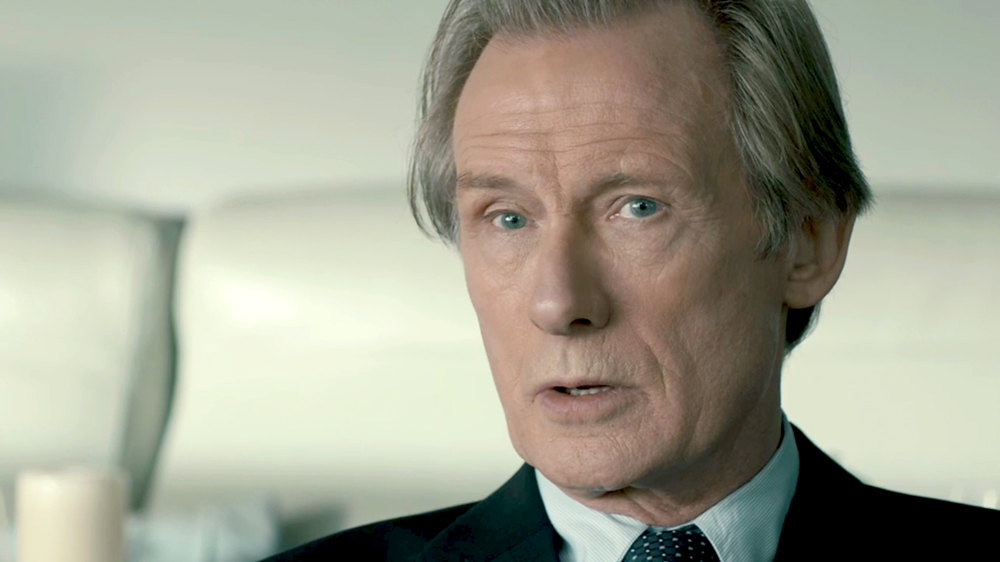“The Hungry Ghosts” is an awful title for a film, even if it does come from a Buddhist expression, but that’s what writer and first-feature director Michael Imperioli decided to call it. Imperioli, of course, is the Emmy-winning actor best known for playing Christopher on “The Sopranos,” and he called on “Soprano” buddy Steve Schirripa (a.k.a. Bobby) to play one of the leads in this ensemble film.
At 104 minutes, “The Hungry Ghosts” feels long–especially since it’s a slice-of-life film that cross-cuts sequences with five different New Yorkers in order to create a collage. Collectively, one suspects, the segments are intended to suggest something about appetites–for sex, companionship, money, respect, understanding . . . whatever–being a universal condition for which there is no cure, no hope of being sated. Films like these tend to be preachy–not through dialogue but by their very construction and repetition of themes.
I get it, but I don’t buy it. I could take five different people and come up with an entirely different theme–which is to say that “The Hungry Ghosts” feels reductive to me.
Schirripa’s performance is solid as Frank, who, we find out midway through the film, is a late-night radio talk-show host with a cocaine problem that keeps him from seeing the estranged relationship he has with his son (Emory Cohen) is mostly his fault. They’re both in therapy, and at one point we endure a real-time session. But the entire film feels like a therapy session, where people act out their problems instead of telling it to the psychoanalyst.
The performances are decent, but the collage-frame doesn’t give us the time with each character in big blocks so that we can learn enough about them to give a damn. And frankly, even when I got to know more, I still didn’t care much about these characters because I didn’t care for them. Maybe it’s because they come too close to stock characters, and their situations too close to clichés. Everyone is a down-and-out or a troubled soul who’s just one crisis away from skid row, rehab, or jail. Before we even know that Frank has a job, we see him going from one illegal gambling operation to another, and either getting kicked out or refused admittance. I can’t count how many times I’ve seen sequences like that in other films.
Surprisingly, for a film that tries to be gritty, the most offbeat thing that happens in “The Hungry Ghosts” is that a guy who just gets out of rehab (Nick Sandow) “picks up” an older drunk. Other than that, Frank’s wife (Sharon Angela) is tempted to have a one-night stand with a guy who’s a dead-ringer for a Seventies’ caricature, and a soft-spoken woman (Aunjanue Ellis) who’s into yoga has a wild sexual domination side to her. Been there, seen that. If this were a Christian film, the turning point would be a chapel that draws them all in. But at the center of all this flailing humanity is a yoga center and the light of Buddha, which, again, makes “The Hungry Ghosts” feel too contrived and preachy. Worse, the scenes of dereliction are directed with such heavy-handedness that they ooze melodrama. By the time we see a waitress succumb to the charms of one of these desperate people and make out hot and heavy on the street with him, it’s one scene like that too many. We’ve seen it already . . . and in this film, too.
The film was nominated for the Tiger Award at the Rotterdam International Film Festival, the only festival it apparently played, but I didn’t see anything award-worthy in “The Hungry Ghosts.” One scene–where Sharon is on the curb with Seventies’ man and on the cusp of a one-night-stand-plays out with compelling honesty and works better because it’s undercut with a dose of reality. When her husband calls and lets her know that their son is wandering the streets on his own, it’s time for her to go.
More wake-up calls would have helped keep this film from dragging characters through the mud of familiarity and “relevance.”
Video:
“The Hungry Ghosts” is presented in an aspect ratio of 1.85:1, and the detail holds except in dark scenes. Colors look natural, but things get a little muddy in the absence of light.
Audio:
Maybe the mix was dialed down for effects speakers, but I only heard Dolby Digital 2.0 Stereo, and a fairly common soundtrack at that. There’s no distortion, but there’s also nothing to distinguish the audio presentation.
Extras:
The only bonus features are a theatrical trailer that plays after the film and a photo gallery.
Bottom Line:
I can’t say that Michael Imperioli should stick to acting, because he wrote scripts for “The Sopranos” that clicked. But I can say that I hope he stops trying to be profound in future films and trust that fully realized characters will win out in the end.


